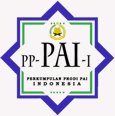The Harmony Level Among Lecturers of The Teacher Education Institute in Peninsular Malaysia
Abstract
Keywords
Full Text:
PDFReferences
Abid, G., Contreras, F., Ahmed, S., & Qazi, T. (2019). Contextual factors and organizational commitment: Examining the mediating role of thriving at work. Sustainability, 11(17), 1-18. https://doi.org/10.3390/su11174686
Alia Yashak, Mohamad Syafiq Ya Shak, Mohd Haniff Mohd Tahir, Dianna Suzieanna Mohamad Shah & Mohd Faisal Mohamed (2020). Faktor Motivasi Teori Dua Faktor Herzberg dan Tahap Motivasi Guru Pendidikan Islam. Sains Insani, 5(2), 65- 74
Berebitsky, D., & Ellis, M. K. (2018). Influences on Personal and Professional Stress on Higher Education Faculty. Journal of the Professoriate, 9(2). http://caarpweb.org/wp-content/uploads/2019/03/Influences-on-Personal-Berebitsky-and-Ellis-9_2.pdf
Bibi, A., Khalid, M. A., & Hussain, A. (2019). Perceived organizational support and
organizational commitment among special education teachers in Pakistan. International Journal of Educational Management. https://doi.org/10.1108/IJEM-12-2017-0365
Budie, B., Appel-Meulenbroek, R., Kemperman, A., & Weijs-Perree, M. (2019). Employee satisfaction with the physical work environment: the importance of a need based approach. International Journal of Strategic Property Management, 23(1), 36-49.
Education Support. (2019). Looking after teacher well-being.
https://www.educationsupport.org.uk/looking-after-teacher-well-being /
Gordon, S. D. (2018). Leadership's Role in Teachers’ Commitment and Retention: A
Case Study Analysis. Doctoral Dissertation, Delaware State University.
https://desu.dspacedirect.org/bitstream/handle/20.500.12090/46/Gordon_desu
_1824E_10087.pdf?sequence=1&isAllowed=y
Hendrawijaya, A. T. (2020). Human resource management in improving students'
academic achievement mediated by teacher's performance. Problems and
Perspectives in Management, 18(1), 242-254
Kalaivani, K, & Karuppiah. M. (2021). Gaya kepimpinan kolaboratif pengetua dan tahap kepuasan kerja guru sekolah menengah kebangsaan. MJSSH Online: 5 (2), 191-207.
Mlangeni, N. G. (2016). Psychosocial factors influencing psychological wellbeing of South African state security forces: An exploratory study (Doctoral dissertation, Stellenbosch: Stellenbosch University).
Morris, J. E., Lummis, G. W., Lock, G., Ferguson, C., Hill, S., & Nykiel, A. (2020).
The role of leadership in establishing a positive staff culture in a secondary
school. Educational Management Administration & Leadership, 48(5), 802-
https://doi.org/10.1177%2F1741143219864937
Morales-Rodríguez, F. M., Espigares-López, I., Brown, T., & Pérez-Mármol, J. M. (2020). The relationship between psychological well-being and psychosocial factors in university students. International journal of environmental research and public health, 17(13), 4778. https://doi.org/10.3390/ijerph17134778
Morrish, L., & Priaulx, N. (2020). Pressure vessels II: An update on mental health among higher education staff in the UK.
Nawaz, M., Abid, G., Arya, B., Bhatti, G. A., & Farooqi, S. (2020). Understanding
employee thriving: The role of workplace context, personality and individual
resources. Total Quality Management & Business Excellence, 31(11-12), 1345-
https://doi.org/10.1080/14783363.2018.1482209
Ohadomere, O., & Ogamba, I. K. (2020). Management-led interventions for workplace stress and mental health of academic staff in higher education: a systematic review. The Journal of Mental Health Training, Education and Practice. https://www.emerald.com/insight/content/doi/10.1108/JMHTEP-07-2020-0048/full/html
Herzberg, F., Mausner, B., & Snyderman, B. (1959). The motivation to work (2nd ed.). New York John Wiley.
Herzberg, F. (1968). One more time: how do you motivate employees?. Harvard Business Review, 46(1), 53-62
Lubis, T. U., Dalimunthe, R. F., & Sinulingga, S. (2020). Effect of Psychological Well-Being, Compensation, and Physical Work Environment towards Employee Satisfaction at PT. Gracia Multi Moda Medan. International Journal of Research and Review, 7(6), 212-213. https://d1wqtxts1xzle7.cloudfront.net/
Schleicher, A (2018b), "Teachers' well-being, confidence and efficacy", in Valuing our Teachers and Raising their Status: How Communities Can Help. OECD Publishing, Paris. https://doi.org/10.1787/9789264292697-6-en
Singh-Manoux, A. (2003). Psychosocial factors and public health. Journal of Epidemiology & Community Health, 57(8), 553-556.
Siti Faridzah, Nor Pazil, Sheerad Sahid, & Norasmah Othman. (2021). Kesan faktor motivasi dan faktor hygiene terhadap kepuasan pekerja dalam kalangan pekerja usahawan MADA. Jurnal Dunia Pendidikan. 3(2), 54-71.
Sutrisno, E. (2010). Manajemen Sumber Daya Manusia, Jakarta. Kencana Prenada Media Group
Tensay, A. T., & Singh, M. (2020). The nexus between HRM, employee engagement
and organizational performance of federal public service organizations in
Ethiopia. Heliyon, 6(6), e04094. https://doi.org/10.1016/j.heliyon.2020.e04094
Vasilenko, E. A., Vorozheykina, A. V., Gnatyshina, E. V., Zhabakova, T. V., & Salavatulina, L. R. (2020). Psychological factors influencing social adaptation of first-years students to the conditions of university. J. Environ. Treat. Tech, 8, 241-247.
World Health Organization. (2010). WHO healthy workplace framework and model: background and supporting literature and practices. Geneva, Switzerland: WHO Press.
Yusoff, S. M., & Tengku-Ariffin, T. F. (2020). Looking after teacher wellbeing: Does teacher empowerment matter?. MOJEM: Malaysian Online Journal of Educational Management, 8(4),43-56. https://mojc.um.edu.my/index.php/MOJEM/article/view/ 26381
DOI: http://dx.doi.org/10.24014/potensia.v9i1.23160
Refbacks
- There are currently no refbacks.
Copyright (c) 2023 POTENSIA: Jurnal Kependidikan Islam

Potensia: Jurnal Kependidikan Islam
E-ISSN: 2442-5605
Published By:
Fakultas Tarbiyah dan Keguruan Universitas Islam Negeri Sultan Syarif Kasim Riau, Indonesia
Mailing Address:
Jl. H.R Soebrantas Km. 15 No. 155 Kelurahan Simpang Baru Kecamatan Tuah Madani, Pekanbaru, Riau, Indonesia
email: potensia.ftk@uin-suska.ac.id
Indexed By:
POTENSIA: Jurnal Kependidikan Islam is licensed under a Creative Commons Attribution 4.0 International License.

_-_Copyy2_(1)_copy1.jpg)



.jpg)
.png)
.jpg)
.jpg)




